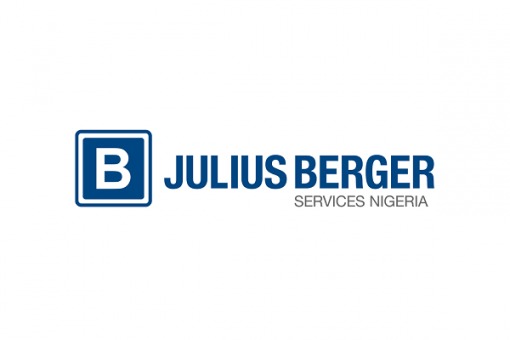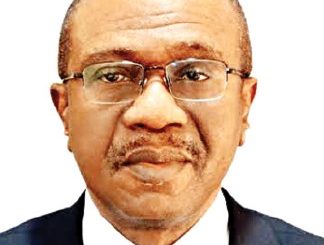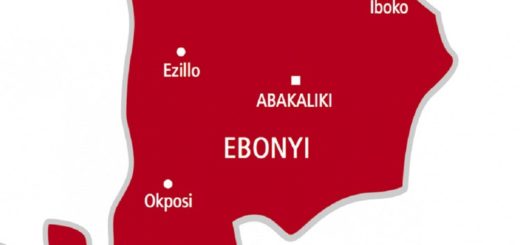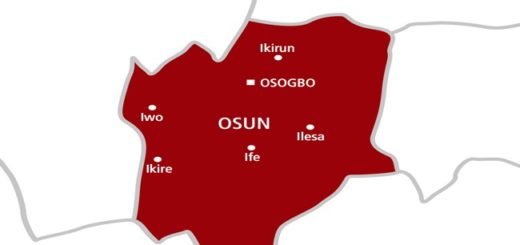How not to handle ‘little’ things
 Thanks to Julius Berger Plc and the Nigerian officialdom that only remembered the need to replace the expansion joints on the Lagos-Ibadan expressway long bridge months after the project was supposed to have been in use, it has been a return of travellers on that route to the Season 2.0 of the nightmare that the daily shuttle on that vital corridor was once was.
Thanks to Julius Berger Plc and the Nigerian officialdom that only remembered the need to replace the expansion joints on the Lagos-Ibadan expressway long bridge months after the project was supposed to have been in use, it has been a return of travellers on that route to the Season 2.0 of the nightmare that the daily shuttle on that vital corridor was once was.
For commuters, whether in-bound or outbound the nation’s commercial capital, the story of the daily agony is perhaps now surpassed by the Season 1.0 in the Dante’s Hell that Nigerians were forced to endure by Julius Berger and a works ministry that chose to treat a foreign entity contracted to do a job as if it was doing the people a favour. Never mind their programmed misery, Nigerians are supposed to be grateful that an element of the work that the company had left undone is at least receiving attention, even if it comes at the pains of sorrow, tears and blood (apologies to the immortal Fela) for the hapless people.
Yes; it’s been nearly a year since Julius Berger and their enablers returned to the Lagos-Ibadan expressway with their rod of affliction on the hapless commuters of that vital gateway. You would imagine that fixing those expansion joints – the rubber connectors that allow the disparate concrete slabs just enough space to ‘breathe’ to avoid cracks – wouldn’t take eternity to replace, at least not on such a vital road that connects Lagos with the rest of the country. Not to Julius Berger, the so-called construction giant. Apparently, nothing moves them: Not the imperative of urgency; nothing of empathy for those forced to do their runs on that stretch. Nothing in the needless millions of man-hours lost daily in their construction-induced snarl is supposed to make a difference in their operational manual. Nigerians, after all, can take anything.
Yes, it is a far cry from what obtained in Season 1.0. Then, Nigerians understood the meaning of shege. On a particular night, my colleague, Lawal Ogienagbon and I left our Matori Lagos office at 10 pm only to arrive at our Arepo home which is some 30 minutes’ drive away the next day at 8.15 am! There was a particular story of a medic said to have given up the ghost right on the wheel in the impossible traffic. I know a family that sold their beautiful home when things became unbearable to relocate to a ‘saner’ part of Lagos.
I must state that things are much better now. That is if you consider the in-bound traffic taking some 30 odd minutes for a trip that would ordinarily take a maximum of five minutes as less-bad. However, I must also say that the out-bound segment is much worse. The other week, it took me and another colleague, Kelvin Osa – Okunbor, nearly two hours to make the distance. While I thought that hell had returned at some point that night, his worry was that the company, at their current pace, will probably extend till sometimes around the middle of next year to complete! He couldn’t figure out a worse nightmare.
Yes, things are better; but then it is not necessarily because the company has done anything to improve on its management of the work; as for those charged with the duty of oversight, theirs have been simply disaster! Whatever noticeable improvements have been recorded are only because the scope of the job is smaller. Julius Berger has done nothing to improve on its service standards any more than those in oversight over them have raised their game.
Read Also: Understanding Tinubu’s tax bills of reliefs for Nigerians, businesses
Which is Nigerians must wonder: what it is in those joints on a stretch that is barely four kilometres long on either side to qualify it for a rocket science that must cost the treasury – aside the billions of naira in contract sums – the indeterminable man-hours, in addition to incalculable public health issues?
I would imagine that a huge chunk of the contractual costs charged on our treasury by an entity like Julius Berger would cover to the minutest detail, the value of the man-hours of skilled, semi-skilled and unskilled labour deployed – added to the material costs and possible time overruns! Do those in charge of our public works ever factor in the economics of time and such other vital details in the agreed programme with the contractors?
Now that the yuletide season is barely two months away, Nigerians obviously have a lot to worry about. I recall a respected senior colleague, Jide Oluwajuyitan once quoting Clement Oladele, a Federal Road Safety Corps (FRSC)’s sector commander, as saying that the road caters for “no fewer than 16 million passengers during the festive period”; and that some 1.8 million vehicles, 72% of which are commercial vehicles, actually ply the road between December and January every year. That was a few years back. With petrol prices hitting the roofs since, projections, although uncertain at this time, leaves little to imagination. High petrol prices or not; it seems unlikely that Nigerians will give up their yuletide reunions. That is simply saying it as it is!
As to what might happen in a short while, I can hazard a guess: the company will by mid-next month offer to remove those concrete barriers, the very source of the agony, only for the nightmare to return in full force when the yuletide season is over.
The above, no doubt, is a familiar story. Far from being an isolated one, it is the archetypal Nigerians story of the gross mismanagement of public trust by regulators and service providers alike. They come in various shades and colours.
How about, for instance, the so-called electricity Distribution Companies (Discos) and their perfect con-act of reaping where they have not sown; who after procuring your billing meters at a premium turns round to tell you years later, that the still-functioning device has not only been phased out, but that you need to cough out another humongous sum for replacement or risk being slapped with an outrageously extortionate estimated billing regime?
Here is my appeal to Julius Berger; it is time to get the job over and done with. While to you might belong the near-absolute control of time and space, not so for the long-suffering Nigerians currently forced to endure the agony of your inscrutable tardiness, if not arrogance. To put it nicely, the current pace of fixing the joints is painfully slow, unacceptable.
And if I may ask: what would it take the company to put more men and material to work if only to lessen the pain of the travellers on that corridor?













